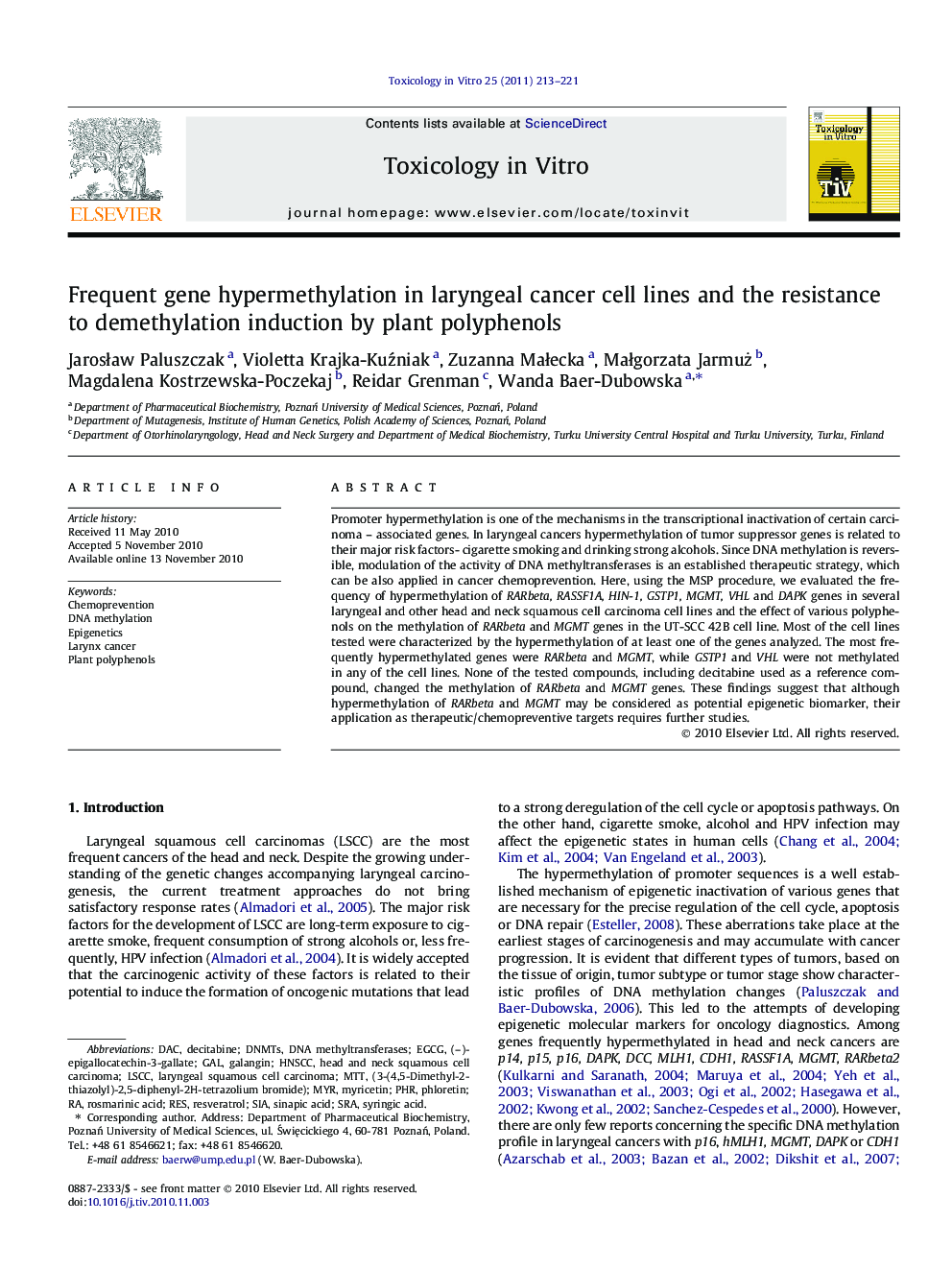| Article ID | Journal | Published Year | Pages | File Type |
|---|---|---|---|---|
| 2602893 | Toxicology in Vitro | 2011 | 9 Pages |
Promoter hypermethylation is one of the mechanisms in the transcriptional inactivation of certain carcinoma – associated genes. In laryngeal cancers hypermethylation of tumor suppressor genes is related to their major risk factors- cigarette smoking and drinking strong alcohols. Since DNA methylation is reversible, modulation of the activity of DNA methyltransferases is an established therapeutic strategy, which can be also applied in cancer chemoprevention. Here, using the MSP procedure, we evaluated the frequency of hypermethylation of RARbeta, RASSF1A, HIN-1, GSTP1, MGMT, VHL and DAPK genes in several laryngeal and other head and neck squamous cell carcinoma cell lines and the effect of various polyphenols on the methylation of RARbeta and MGMT genes in the UT-SCC 42B cell line. Most of the cell lines tested were characterized by the hypermethylation of at least one of the genes analyzed. The most frequently hypermethylated genes were RARbeta and MGMT, while GSTP1 and VHL were not methylated in any of the cell lines. None of the tested compounds, including decitabine used as a reference compound, changed the methylation of RARbeta and MGMT genes. These findings suggest that although hypermethylation of RARbeta and MGMT may be considered as potential epigenetic biomarker, their application as therapeutic/chemopreventive targets requires further studies.
